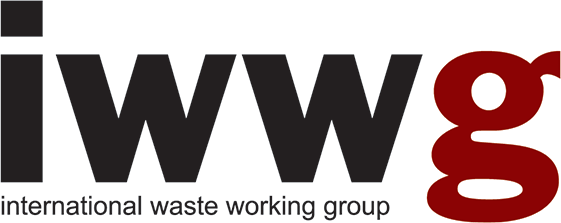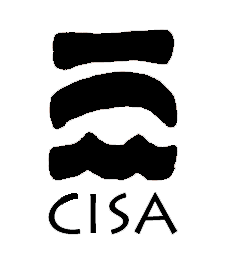PREVALENCE OF INJURIES AMONG WASTE PICKERS. A CASE STUDY IN NIGERIA
- Available online in Detritus - Volume 17 - December 2021
- Pages 89-96
Released under CC BY-NC-ND
Copyright: © 2020 CISA Publisher
Abstract
Waste picking might provide, in low-income countries, a livelihood for many individuals representing an important survival strategy. However, during their activities, waste pickers are at risk of encountering harmful waste, which could cause injuries and other infectious diseases. This paper investigates the occurrences of injury among waste pickers and the methods they use to treat the injuries in Bauchi city, Northeastern Nigeria. A total of 322 waste pickers were randomly selected across 80 waste pickers’ middlemen shops. Data was obtained through questionnaire and interview. Based on the data presented, 1474 frequencies of injuries were reported among 247 waste pickers. Age, education and working experience are significant parameters to the prevalence of injuries among waste pickers, and the incidence of injuries increased with the decrease in those parameters. The study shows that most of the waste pickers experienced injuries, most of whom do not attend clinic when injury occurs; instead, they used salt, ash, sand, hydraulic, kerosene, battery acid, among others, to treat their wounds. Cuts and pierces are good entry points for bacteria and viruses, which can eventually spread to the general public infectious diseases, such as Hepatitis, Cholera and Lassa fever. Provision of Personal Protection Equipment (PPE), a labor rights policy, immunization and the launch of an awareness campaign are among the recommendations made by this study.Keywords
Editorial History
- Received: 24 Feb 2020
- Revised: 19 Nov 2021
- Accepted: 19 Nov 2021
- Available online: 19 Dec 2021
References
Adama, O., 2014. Marginalization and intergration within the informal economy: the case study waste pickers in Kaduna, Nigeria. Article in International Development Planning Review.36(2), 155-180.
DOI 10.3828/idpr.2014.11
Adamu, Y., 2018. The economic of scavenging business in Mubi metropolitan area. International Journal of Research Granthaalayah, 6(7), 191-199.
DOI 10.5281/zenodo.1325862
Ali A.F., Tanko A. I. & Kovo A.S., 2017. Solid Waste Management Practice in a Less Developed Urban Setting. Journal of Environmental Studies. 2017;3(1): 4. https://www.avensonline.org/wp-content/uploads/JES-2471-4879-03-0018.pdf
Ajayi, O.A. and Ibrahim, A. T. (2021) Harnessing the Potentials of Almajiri Cohorts for Entrepreneurship development. Revista Universitară de Sociologie. XVII (1), 45 – 50. University of Craiova, Romania. http://www.sociologiecraiova.ro/revista/wp-content/uploads/2021/04/RUS-1_2021_ff-45-50.pdf
Babanyara, Y.Y. & Bogoro, A.G., 2011. Evacuation of solid waste in residential areas of Bauchi city, Nigeria. Journal of Environmental Sciences and Resource Management. 3, 10-29. https://ssrn.com/abstract=2028796
Bogoro, A. G., Mohammed, Y. A. & Babanyara, Y. Y., 2013. Indiscriminate Solid Waste Dioposal in Bauchi: Causes and Impacts on the Communityand the Environment. Journal of Environment and Earth Science. 3(4). ISSN 2224-3216
Bonini-rocha, A. C., Alves, R., Oliveira, C. De, Bashash, M., Machado, C., Resende, V., & Cruvinel, N., 2021. Prevalence of musculoskeletal disorders and risk factors in recyclable material waste pickers from the dump of the structural city in Brasília , Brazil. Waste Management, 125, 98–102.
DOI 10.1016/j.wasman.2021.02.018
Chimere, M., Ohajinwa, P. M., Van, B., Martina, G., Vijver, I. & Willie, J. M., 2017. Health Risks Awareness of Electronic Waste Workers in the Informal Sector in Nigeria. International journal of environment research for public health. 14, 911.
DOI 10.3390/ijerph14080911
Chukwunonye, E. & Clive, L. R., 2012. Analysis of barriers and success factors affecting the adoption of sustainable management of municipal solid waste in Nigeria. Journal of Environmental Management 103 (2012) 9-14.
DOI 10.1016/j.jenvman.2012.02.027
Chukwunonye, E., Roberts, C. L., Phillips, P. S., Lawrence, O. M. &Nzeadibe, T. C., 2009. Evaluation of Public Health Impacts of Waste Scavenging in Abuja Nigeria. Conference paper Retrieved from: https://www.researchgate.net/publication/235418470
Croswell, J.W. & Plano, C.V., 2011. Designing and conducting mixed methods research. 2nd ed. Thousand Oaks: Sage Research method for quantitative and qualitative study: mixed method. https://www.worldcat.org/title/designing-and-conducting-mixed methods research/oclc/558676948> (cited 12.05.20)
Golder, S., & Alamgir, M., 2018. Use of geographical information system for the evaluation of solid waste management practice in khulna city. Detritus, 4(December), 178–188.
DOI 10.31025/2611-4135/2018.13743
Gutberlet, J., Besen, G. R., & Morais, L. P., 2020. Participatory solid waste governance and the role of social and solidarity economy: Experiences from São Paulo, Brazil. Detritus, 13, 167–180.
DOI 10.31025/2611-4135/2020.14024
International Labor Organization., 2004. Addressing the exploitation of children in waste picking: A thematic evaluation on actions on child labor. Geneva: International Labor Organization. https://www.scribd.com/document/465574515/2004-eval-scavenging-en
Irabor, G. A. & Oghenekohwiroro, E., 2017. Assessment of the activities of scavengers and their economic impacts in waste recovery in Warri metropolis, Delta State Nigeria. International Research Journal of Public and Environmental Health. 4, 22-29.
DOI 10.15739/irjpeh.17.003
Ivens, U., Lassen, J. H., Kaltoft, B. S. & Skov, T., 1998. Injuries among domestic waste collectors. American Journal of Industrial Medicine. 4, 26-28.
DOI 10.1002/(SICI)1097-0274(199802)33:2<182::AID-AJIM10>3.0.CO;2-X
Jerie, S., 2016. Occupational Risks Associated with Solid Waste Management in the Informal Sector of Gweru, Zimbabwe. Journal of Environmental and Environmental Public Health. 2016:9024160.
DOI 10.1155/2016/9024160
Kofoworola, O. F., 2007. Recovery & Recycling Practices in Municipal Solid Waste Management in Lagos, Nigeria. Waste Management Journal. 27, 1139–1143.
DOI 10.1016/j.wasman.2006.05.006
Lambu, I. B., 2016. Waste or Wealth’ the Cultural Crux Behind Scavenging in Urban Kano State, Nigeria. Pyrex Journal of Research in Environmental Studies 3 (3), 19-25
Leton, T.G. & Olujide O., 2004. Landfill operations in the Niger delta region of Nigeria. Engineering Geology. 73, 171-177.
DOI 10.1016/j.enggeo.2003.12.006
Maigari, A. I., 2014. Environmental Education and Sanitation in Urban Centres of KanoRegion. Research on Humanities and Social Sciences. 4(12), 85-91. https://RHSS/article/viewFile/13615/14214
Nabegu, A. B., 2008. The Role of Refuse Management and Sanitation Board (REMASAB) In Solid Waste Management in Kano Metropolis. Maiduguri Journal of Arts and Social Sciences, 6(2). https://www.researchgate.net/publication/255719043_
Nabegu, A.B., Bappah, B.A., Akpu, B. & Mustapha, A., 2016. Constraints to municipal solid waste management in Bauchi city, Nigeria. International Journal of Applied Research and Technology. 5, 142-153
National Population Commission., 2016. Bauchi city population. https://www.citypopulation.de/php/nigeria-admin.php?adm1id=NGA005 cited 14.06.20
Nzeadibe, T. C., 2009. Solid waste reforms and informal recycling in Enugu urban area, Nigeria. Habitat International, 33, 93–99.
DOI 10.1016/j.habitatint.2008.05.006
Nzeadibe, T. C., Raymond, N. C., Anyadike & Roseline, F. N., 2012. A Mixed Methods Approach to Vulnerability and Quality of Life Assessment of Waste Picking in Urban Nigeria.Applied Research in Quality of Life Journal of the International Society for Quality-of-Life StudiesVol. 7 No. 4.
DOI 10.1007/s11482-012-9171
Nzeadibe, T.C, Anyadike, R.N., 2012. Social participation in city governance and urban livelihoods: Constraints to the informal recycling economy in Aba, Nigeria. City, Culture and Society, 3(4),313–325.
DOI 10.1016/j.ccs.2012.10.001
Nzeadibe, T.C. & Adama, O., 2013. Improved recycling performance: policy options for Nigerian cities. Policy Notes, 2013/2, pp.1-4. Uppsala, Sweden: The Nordic Africa Institute. http://nai.divaportal.org/smash/get/diva2:653251/FULLTEXT01.pdf
Nzedebe, T.C. & Adama, O., 2015. Ingrained Inequalities? Deconstructing Gendered Spaces in the Informal Waste Economy of Nigerian Cities. Springer Science+Business Media Dordrecht.
DOI 10.1007/s12132-014-9246-0
Nzedebe, T.C., Ambrose, O. I., Peter, O.M., Precious, C.O. & Eberechuku, J.E., 2018. Children, waste and wellbeing: A critical analysis of socio-enviromental justice in almajirai solid wastes management in northern Nigerian cities. Article in African population studies Vol. 32 No. 2 (supp 2).
DOI 10.11564/32-2-1191
Nzeadibe, T. C., 2019. Value reclamation by municipal solid waste pickers and scrap dealers in Nigerian cities. Paper presentation at school of public health, room 1g, university of Western Cape, South Africa.
DOI 10.13140/RG.2.2.31232.69127
NorFaiza, M.T., Noor, A. H. & Yusof, M. Z., 2019. Health Care Waste Management and Sustainable Development Goals in Malaysia. Journal of Wastes and Biomass Management (JWBM) 1(1) 18-20.
DOI 10.26480/jwbm.01.2019.18.20
Ogwueleka, T.C., 2009. Municipal solid waste characteristics and management in Nigeria. Iranian Journal of Environmental Health Sci Eng. 6, 173-180. http://www.bioline.org.br/pdf?se09026
Ohajinwa, C. M., Bodegom, P. M. Van, Vijver, M. G., Olumide, A. O., Osibanjo, O., & Peijnenburg, W. J. G. M., 2018. Prevalence and injury patterns among electronic waste workers in the informal sector in Nigeria. Injury Prevention; 24: 185-192.
DOI 10.1136/injuryprev-2016-042265
Reno, J., 2009. Your trash is someone’s treasure. Journal of Material Culture. 14, 29-46.
DOI 10.1177/1359183508100007
Rushton, L., 2003. Health hazards and waste management. British Medical Bulletin 2003; 68: 183 197 British Medical Bulletin, Vol. 68. The British Council 2003; all rights reserved
DOI 10.1093/bmb/ldg034. 68, 183–97
Schenck, C. J. & Blaauw P.F., 2011. Living on what others throw away: An exploration of the socioeconomic circumstances of people selling recyclable waste. The Social Work Practitioner Researcher. 23, 135-153. https://repository.uwc.ac.za/xmlui/bitstream/handle/10566/770/SchenckSocioeconomic 01.pdf?sequence&isAllowed=y
Singh, S. & Chokhandre, P., 2015. Assessing the impact of waste picking on musculoskeletal disorders among waste pickers in Mumbai, India: a cross-sectional study. BMJ Open 2015; 5:e008474.
DOI 10.1136/bmjopen-2015- 008474
Steuer, B., Ramusch, R., & Salhofer, S., 2018. Is there a future for the informal recycling sector in urban China? Detritus, Volume 04 - December 2018.
DOI 10.31025/2611-4135/2018.13725
Sustainable Development Goals., 2019. Report of the Secretary-General, Special edition: progress towards the Sustainable Development Goals. https://wasteaid.org/waste-sustainable development-goals/
Uthman, A.Y., Imam-Fulani, O. A., Uthman, H. A., Ameen, B. F. Rotimi, A., Ahmed, H. K.,Oloyede, A. G. & Salaudeen, O. M., 2017. Knowledge and experience of work related hazards and Utilization of Safety Practices among Solid Waste scavengers in Ilorin metropolis, Kwara State, Nigeria. Tropical Journal of Health Science. 24 (4) 1117-4153. https://www.ajol.info/index.php/tjhc/article/view/164034
United Nations International Children’s Emergency Fund (UNICEF), 2019. Addressing Out-of-school Children Challenge in Bauchi state. https://www.thisdaylive.com/index.php/2019/08/15/unicef-bauchi-collaborate-to addressout-of-school-children-challenge/ (cited 09.06.20)
Villa, F., Arcidiacono, A., Causone, F., Masera, G., Tadi, M., & Grosso, M., 2020. Entering rocinha: A gis approach for the improvement of solid waste management in a slum in Rio de Janeiro (Brazil). Detritus, 9(March), 221–231.
DOI 10.31025/2611-4135/2020.13900
Yusuf, F. I., Ali, A. F. & Buba, L. F., 2021. Awareness of Occupational Hazards and Use of Protective Equipment among Waste Pickers in Bauchi City North-eastern Nigeria. Proceedings of the 2021 Annual Conference of Environmental Management Association of Nigeria. Kano, Nigeria. 2021; 447-460




